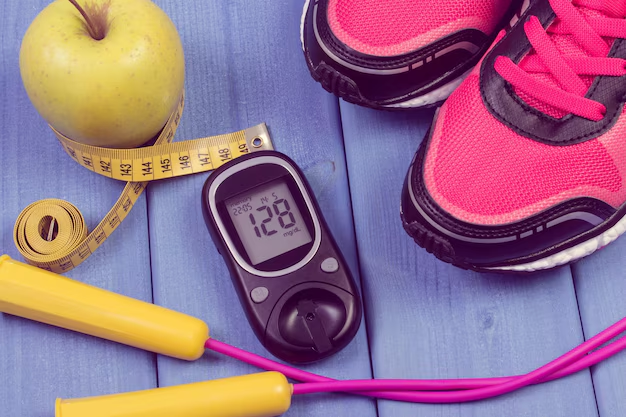Your Guide to Can Diabetes Cause Weight Loss
What You Get:
Free Guide
Free, helpful information about Diabetes FAQ and related Can Diabetes Cause Weight Loss topics.
Helpful Information
Get clear and easy-to-understand details about Can Diabetes Cause Weight Loss topics and resources.
Personalized Offers
Answer a few optional questions to receive offers or information related to Diabetes FAQ. The survey is optional and not required to access your free guide.
Does Diabetes Lead to Weight Loss? Here's Why and What You Can Do
When you think of diabetes, certain symptoms might come to mind, such as increased thirst and frequent urination. But unexpected weight loss? It's a lesser-known symptom that can occur, especially in individuals with type 1 diabetes. Understanding why diabetes can cause weight loss is crucial not just for your health, but also for navigating the resources available to manage medical expenses, potential treatments, and lifestyle modifications.
How Diabetes Leads to Weight Loss
Diabetes affects the way your body processes glucose, a type of sugar that’s a primary energy source. In type 1 diabetes, the body doesn’t produce insulin, the hormone needed to get glucose into cells for energy. Without insulin, glucose builds up in the bloodstream rather than being used by cells. Consequently, the body begins to burn fat and muscle for energy, leading to weight loss.
In type 2 diabetes, weight loss can occur, albeit less commonly. This can happen if blood sugar levels are high and the body's insulin effectiveness is compromised, leading again to cells not receiving enough glucose and the breakdown of fat and muscle.
Recognizing the Signs
Recognizing unintentional weight loss is key, as it might be one of the earliest signs of undiagnosed diabetes or a marker of poorly managed diabetes. Other symptoms include:
- Increased thirst and hunger
- Frequent urination
- Fatigue
- Blurred vision
If you notice these signs, it's important to consult a healthcare provider for an accurate diagnosis and treatment plan.
Navigating Financial and Educational Resources
Managing diabetes effectively involves ongoing medical care, monitoring devices, medication, and sometimes significant lifestyle changes, all of which can be financially taxing. Fortunately, various programs can alleviate some of the burdens.
Government Aid Programs
Medicare and Medicaid: These programs offer essential healthcare coverage if you qualify. They can help cover doctor's visits, necessary tests, and diabetes management supplies.
Supplemental Nutrition Assistance Program (SNAP): Assists in purchasing healthy food, which is crucial in managing diabetes through diet.
Financial Assistance and Debt Relief Options
Patient Assistance Programs (PAPs): Many pharmaceutical companies offer PAPs providing free or low-cost medications to eligible patients.
Healthcare Savings Accounts (HSAs): If available, these can be a great way to manage medical expenses with tax advantages.
Credit Solutions
Medical Credit Cards: These cards are specifically designed for medical expenses and may offer no-interest financing options if paid in a specific time frame.
Personal Loans: Consider these for covering large medical costs. Ensure you understand the terms well and evaluate the interest rates.
Educational Grants and Scholarships
Diabetes Scholarships: Some organizations offer scholarships to students with diabetes to assist with educational costs.
Workshops and Courses: Look for free or subsidized workshops that teach diabetes management skills and provide nutritional information.
Empower Your Health and Finances
While diabetes can undeniably impact your day-to-day life, understanding your symptoms and having a firm strategy for financial management can ease the journey. Be proactive about your health and open to exploring tools and solutions that can help manage diabetes alongside your financial wellbeing.
🧾 Helpful Resources for Managing Diabetes and Related Costs
- 🇺🇸 Medicare/Medicaid: Primary healthcare coverage options for eligible individuals.
- 🥗 SNAP: Assists with purchasing healthy food.
- 💊 Patient Assistance Programs (PAPs): Help with medication costs.
- 🏥 Medical Credit Cards: Dedicated to medical expenses, often with favorable terms.
- 👨🎓 Diabetes Scholarships: Financial aid for students managing diabetes.
- 📚 Workshops and Courses: For learning about diabetes management and nutrition.
- 📅 Healthcare Savings Accounts (HSAs): Tax-advantaged method to save for medical expenses.
What You Get:
Free Diabetes FAQ Guide
Free, helpful information about Can Diabetes Cause Weight Loss and related resources.

Helpful Information
Get clear, easy-to-understand details about Can Diabetes Cause Weight Loss topics.

Optional Personalized Offers
Answer a few optional questions to see offers or information related to Diabetes FAQ. Participation is not required to get your free guide.


